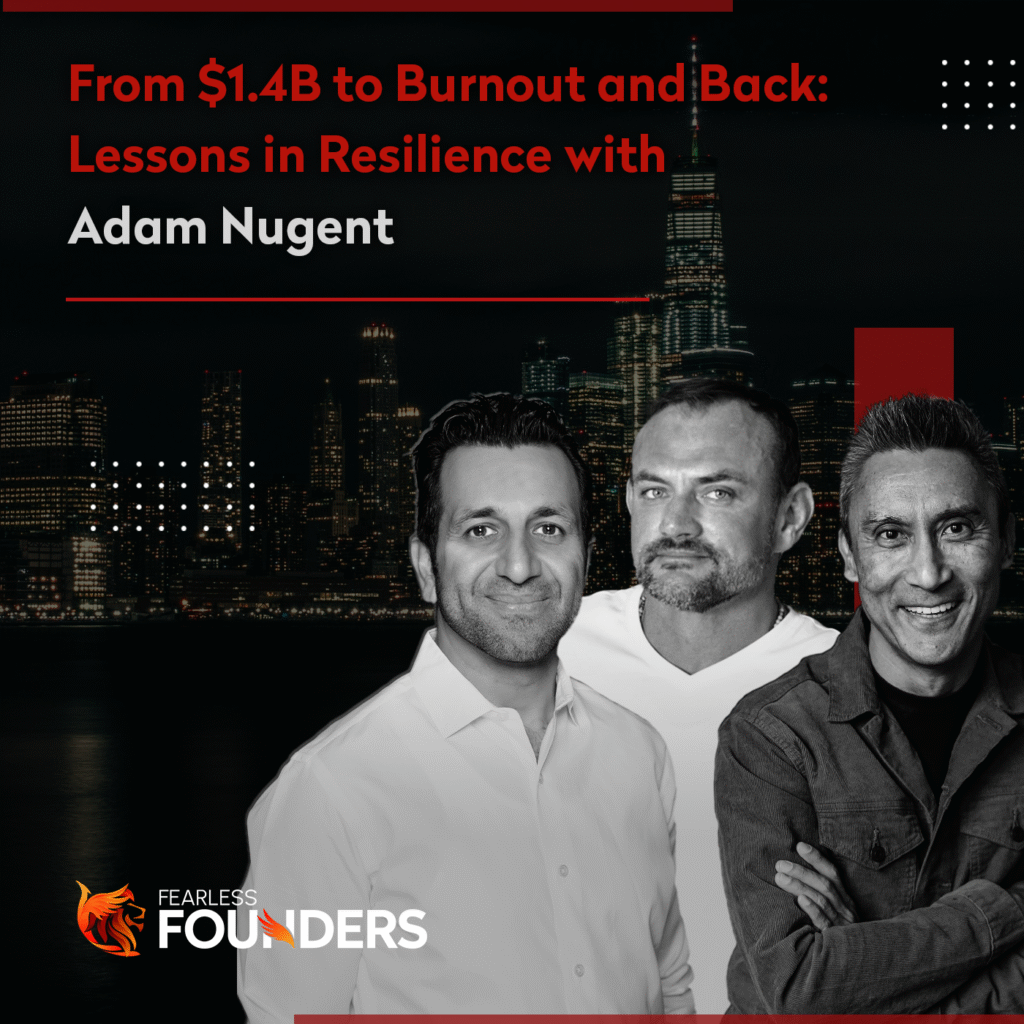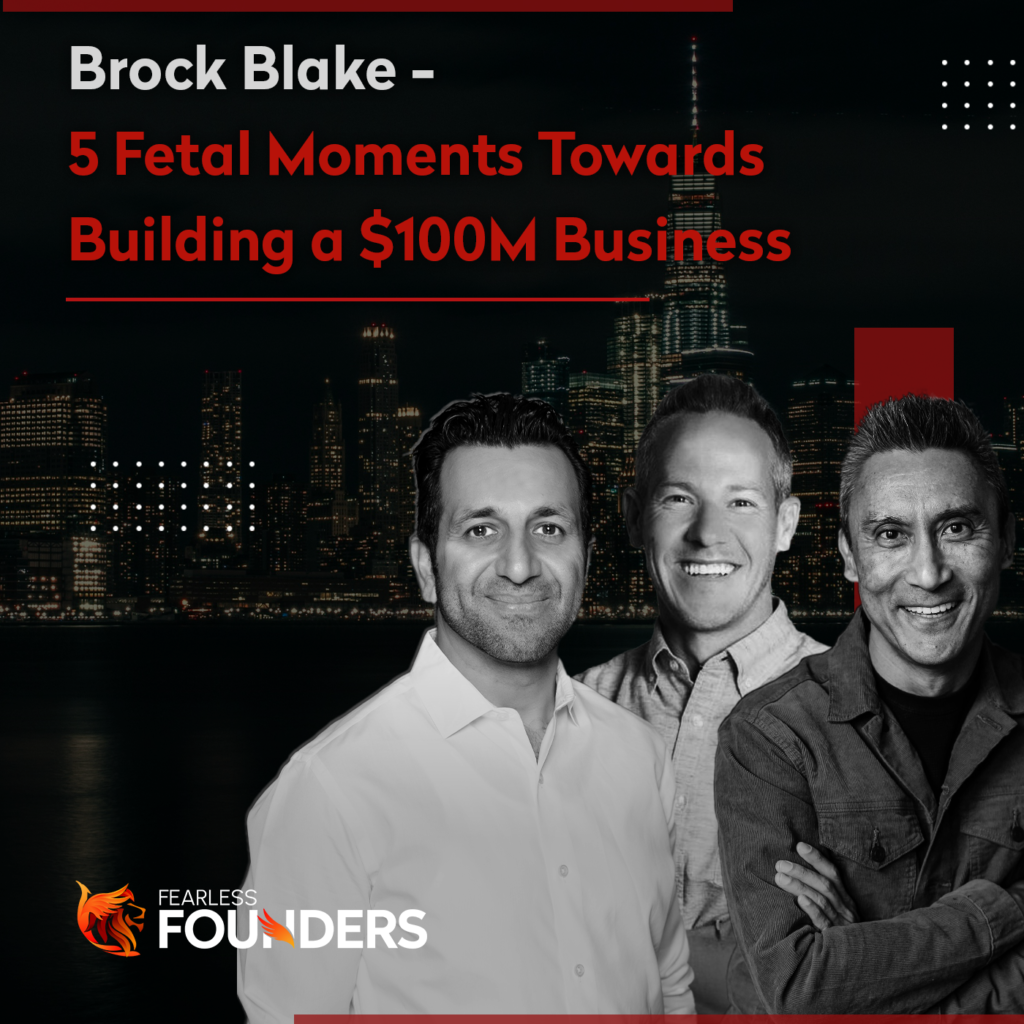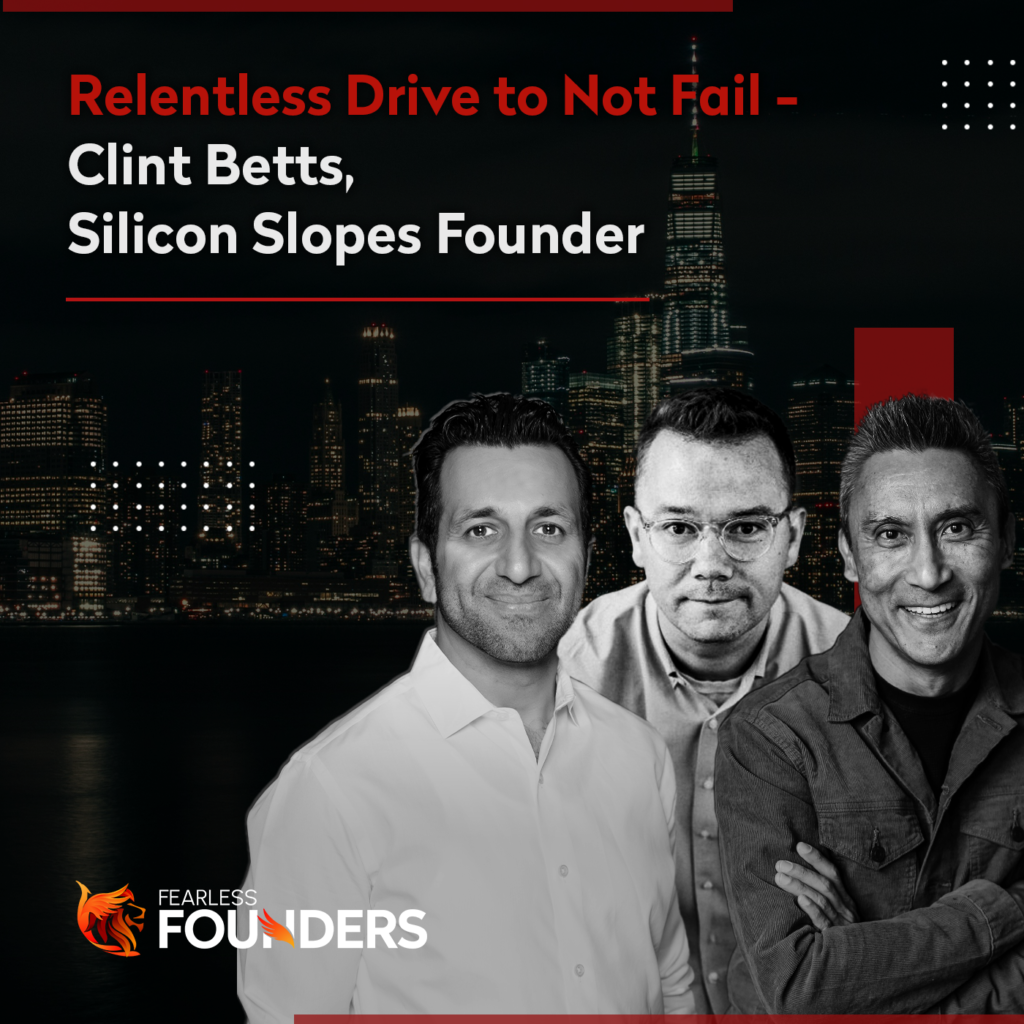Scaling Startups: Lessons from a Golf Industry Tech Founder’s Journey – Insights from Evan Teshima
In this Fearless Founders podcast episode, hosts Ike and Benoy interview Evan Teshima, founder of a golf-focused tech company, which he successfully grew and sold. Evan shares his experiences, revealing lessons on pivoting business models, sales strategies, and hiring, as well as building a sustainable startup from the ground up. His insights resonate with founders navigating the complex landscape of entrepreneurship. Let’s dive into each key takeaway, exploring how Evan’s journey can guide other entrepreneurs.
1. From Social Media for Golfers to a Cloud-Based Solution: The Power of Pivoting
Evan’s entrepreneurial journey started with a unique idea—a social media platform for golfers. However, after several failed attempts to garner investor interest, he realized the need for a pivot. Through customer feedback and market insights, he shifted his focus to creating a cloud-based point-of-sale (POS) system for golf courses.
- Identifying the Market Need: Initially, Evan and his co-founder focused on creating a “Facebook for Golfers.” After repeatedly failing to make it past the first round of business competitions, they realized there wasn’t a strong demand for this concept. However, through customer interactions, they discovered a recurring pain point with outdated POS systems at golf courses.
Lesson: Be ready to listen to customers and adapt your product based on real-world needs rather than sticking rigidly to your initial idea.
- Pivoting Effectively: Evan pivoted his business model multiple times, ultimately settling on a cloud-based POS system that solved a major pain point for golf course managers: cumbersome legacy systems that lacked cloud functionality. His shift wasn’t just incremental but involved a complete overhaul of the business model.
Lesson: Entrepreneurs should be prepared to pivot—sometimes multiple times—to find the right product-market fit. Every pivot brings them closer to solving real problems.
- Timing and Market Fit: By creating a cloud-based POS system, Evan capitalized on a growing trend: the transition from client-server setups to cloud-based solutions. Timing was critical to the success of his business, as golf courses began looking for more agile, tech-driven solutions.
Lesson: Market timing is crucial. Being early with the right solution can give a startup a massive competitive advantage.
2. The Importance of Sales in the Early Stages
Evan stresses the importance of founders taking a hands-on approach to sales in the early stages of their business. Founders are often best positioned to understand customer needs and drive revenue when resources are tight.
- Founders Must Sell: As a startup founder, Evan emphasizes that the CEO must be the company’s best salesperson in the beginning. He personally engaged in sales calls and demos to understand the customer’s pain points and needs, which directly influenced product development.
Lesson: Founders must wear multiple hats, and mastering sales is critical. Selling helps validate the product, build relationships, and drive early revenue.
- Sales as Validation: Evan believes that sales are the best form of product validation. He mentions how selling—even selling features they didn’t yet have—was crucial for finding out what customers truly wanted and were willing to pay for.
Lesson: Early sales are a strong indicator of whether a startup is on the right track. If customers are willing to pay, it means the product is solving a real problem.
- Revenue as Lifeline: Especially for a bootstrapped business, revenue is the lifeblood. Evan shared how crucial it was to learn how to sell and bring in revenue quickly to sustain the business without relying on external funding.
Lesson: When funding is scarce, sales can be the best way to keep the lights on and build momentum.
3. Building an In-House Team vs. Outsourcing
Evan strongly advocates for building an in-house technical team, especially in the early stages, as he believes it is crucial for product development and maintaining control over the company’s vision.
- In-House Teams Understand the Vision: Evan explains that in-house teams are more closely aligned with the company’s vision and mission. Outsourced teams, especially those overseas, may not fully grasp the intricacies of the product or the nuances of customer needs.
Lesson: A strong in-house team can drive product development with greater understanding and passion, leading to better results.
- Flexibility and Agility: In a startup environment, flexibility is key. Evan explains that an in-house team can quickly respond to feedback from sales calls and customer needs. Outsourced teams often require more time to implement changes and may not be as nimble when it comes to product pivots.
Lesson: Startups need the ability to pivot quickly, and having an in-house team allows for faster, more responsive changes.
- Long-Term Costs and Control: While outsourcing might seem cheaper upfront, Evan warns of the long-term costs and potential risks. Outsourced teams might cause delays, miscommunication, or technical debt, which could slow down progress.
Lesson: Building an in-house technical team can reduce long-term costs and give the startup better control over its product’s development and future.
4. Lessons Learned in Hiring Sales Leaders
One of the most difficult challenges Evan faced was hiring a sales leader. After several missteps with external hires, he found success by promoting internally—a lesson many founders can learn from.
- The Danger of External Hires: Evan recounts how his company wasted both time and resources on external sales hires who came with impressive resumes but lacked the ability to understand and sell their specific product. These leaders often excelled in interviews but underperformed in the role.
Lesson: A candidate’s past experience at big-name companies doesn’t necessarily translate to success in a smaller, growing company.
- Promoting from Within: The eventual success came when they promoted Richie, an internal sales representative, to the VP of Sales role. Richie already knew the product inside and out and had proven his ability to sell. His credibility with the team and his knowledge of the customer base made him the ideal candidate.
Lesson: Promoting from within can often lead to better results because the internal candidates have the knowledge, loyalty, and proven track record.
- Building Trust and Culture: When Richie was promoted, the sales team respected his experience and leadership because they had seen his success firsthand. Evan highlights how trust and respect are critical components of building an effective sales team.
Lesson: Internal promotions can help build a culture of trust, continuity, and respect within the team.
Evan Teshima’s entrepreneurial journey offers critical insights for startup founders. His success stems from an ability to adapt and pivot, a strong focus on customer-driven sales, building a dedicated in-house team, and learning from leadership hiring missteps. By focusing on solving real problems and creating a scalable business, Evan shows that founders who stay agile and focused are better positioned to seize growth opportunities—and eventual acquisition deals. His story is a testament to persistence, adaptability, and knowing when to pivot, offering a roadmap for any entrepreneur aiming to scale successfully.
Join Benoy and Ike on the Fearless Founders podcast, where professionalism meets fun, and every episode is a step towards realizing your entrepreneurial dreams. Tune in on YouTube and Spotify, and visit their website for access to premium services that elevate your business journey. This is your opportunity to learn, grow, and thrive in the dynamic world of entrepreneurship.

Adam opens up about the collapse of his business, the emotional aftermath, and his journey through rock bottom toward personal and professional reinvention. From the pitfalls of chasing external validation to the power of rebuilding your identity, this conversation is packed with hard-won wisdom for every entrepreneur navigating risk, growth, and purpose.

In Episode 29 of Fearless Founders, hosts Benoy Tamang and Ike Kavas welcomed Abby Martin, HR expert and President of Amplēo HR, for a deep dive into what truly drives scalable, people-first growth in startups.

In this episode 28 of Fearless Founders, Brock Blake, co-founder and CEO of Lendio, shares the unfiltered reality behind building a $100M business. He walks us through five pivotal “fetal position” moments—those gut-wrenching lows that tested his resolve, leadership, and belief in the mission.

In Episode 27 of Fearless Founders, we sit down with Fengmin Gong, a pioneering technologist and four-time exited founder, known for his instrumental roles in building companies like Palo Alto Networks and CipherOptics.

In this episode of Fearless Founders, Jeremy Glauser, a three-time exit entrepreneur, shares his journey of building and scaling multiple businesses. He opens up about the challenges of entrepreneurship, from navigating market timing to the emotional toll of setbacks.

In Episode 25 of Fearless Founders, we sit down with Tom Turner, a visionary leader in cybersecurity and a seasoned entrepreneur with multiple successful exits. With a career spanning decades in the tech industry, Tom shares his insights on building and scaling startups, aligning sales and marketing for growth, and the critical role of leadership in fast-moving industries.

In Episode 24 of Fearless Founders, Peter Harris, Managing Director of University Growth Fund, shares his remarkable journey from real estate and micro-franchising in Ghana to leading a venture fund in Utah. With years of experience evaluating startups and raising capital, Peter offers invaluable insights into when to raise funds, navigating investor relationships, and building successful businesses.

In this episode 23 of Fearless Founders, our guest, Clint Betts is a key figure in the startup and tech community, best known for founding Silicon Slopes and Kokomo. He has played a major role in fostering entrepreneurship, connecting leaders, and shaping Utah’s tech landscape.

In this episode 22 of Fearless Founders, Jeremy Docken is a seasoned entrepreneur and founder of Calderas, a healthcare technology company. With a background in accounting and forensic finance at Arthur Andersen and KPMG, he transitioned into the tech and pharmaceutical space, building innovative solutions.

In Episode 21 of Fearless Founders, Brandon Bliss shares his incredible journey from finance graduate to achieving five successful company exits. With over 20 years of experience, he unpacks strategies for elevating business growth, the value of mentorship, and the power of aligning your purpose with your business venture. Learn more how his eye-opening life story and practical lessons can inspire you to create a lasting impact on your team and unlock growth for everyone. Don’t miss this episode packed with actionable takeaways!